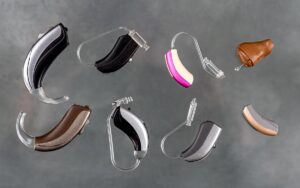
The actual issue with chronic tinnitus is not simply that you have a ringing in your ears. The real problem is that the ringing won’t stop.
Initially, this might be a mild noise that’s not much more than a bit annoying. But after a day or a week or a month, that ringing or buzzing can become aggravating, frustrating, even debilitating.
That’s why it’s critical that if you are coping with tinnitus you adhere to some tips to make life easier. It can make a huge difference if you have a plan when you’re lying in bed struggling to fall asleep because of the buzzing or ringing in your ear.
Your Tinnitus Can be Made Worse
It’s beneficial to keep in mind that tinnitus is frequently not static. Symptoms present themselves in spikes and valleys. There are times when your tinnitus is mild and practically lost in the background. At other times the sounds will be shrieking in your ears so loudly it’s impossible to disregard.
This can be a really uncertain and frightening situation. Maybe you even get panic attacks while driving to work because you’re worried about your tinnitus flaring up during a meeting. That panic attack, in and of itself, can cause the very situation you’re worried about.
Tips For Coping With Tinnitus
The more you understand about tinnitus, the better you can prepare for and manage the effects. And management is the real key since tinnitus has no known cure. There’s no reason that your quality of life has to suffer if you establish the proper treatment.
Consider Tinnitus Retraining Therapy
Tinnitus retraining therapy (TRT) is a standard strategy for tinnitus management. The analogy that gets used frequently is the sound of rain on your roof: it’s very loud and noticeable when it first starts but by the end of the storm you stop paying attention to it and fades into the background. TRT uses the same principle to train your brain to push the tinnitus symptoms into the background of your thoughts so you will have an easier time ignoring them.
Perfecting this technique can take some practice.
Get Your Brain Distracted
Your brain is continuously looking for the source of the noise and that’s one of the reasons why tinnitus can be so aggravating. So supplying your brain with more (and varied) stimulation to concentrate on can be helpful. You could:
- Read a book while taking a bubble bath.
- Do some drawing or painting while listening to music.
- Enjoy some time outdoors listening to the sounds of nature.
You get the gist: Your tinnitus might be able to be decreased by engaging your brain.
Alternately, many people have discovered that meditation helps because it concentrates your attention on something else, your breath, a mantra, and so on. Another benefit of meditation, at least for some, is that it can lower blood pressure which is a known cause of tinnitus symptoms.
Manage Tinnitus With a Hearing Aid
Hearing aids that help decrease tinnitus symptoms are already being developed by several hearing aid companies. Hearing aids are a great option because you put them in and can forget about them the whole day, you won’t need to carry around a white noise generator or constantly use an app. You can relax and let a discreet hearing aid manage the ringing for you.
Make a Plan (And Stick to it)
The effect of some tinnitus episodes can be minimized, and your stress response can be managed if you have a good plan for any spikes in your symptoms. Pack a bag of practical items to bring with you. Anything that can help you be equipped for a tinnitus surge, even generating a list of useful exercises will be good because it will keep you from having a panic attack!
The Key is Management
Chronic tinnitus is a condition that has no known cure. But management and treatment of tinnitus is a very real potential. Make certain you are dealing with your tinnitus not suffering from it by utilizing these tips and any others that you find helpful.
[blogcta]
References
https://www.ncbi.nlm.nih.gov/pmc/articles/PMC3303565/
https://www.ncbi.nlm.nih.gov/pmc/articles/PMC5050200/
https://pubmed.ncbi.nlm.nih.gov/17956798/
https://www.ncbi.nlm.nih.gov/pmc/articles/PMC4447068/
https://journals.plos.org/ploscompbiol/article?id=10.1371/journal.pcbi.1008664




